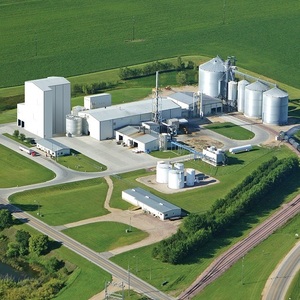Gevo discusses Luverne operations, Praj agreement

Gevo Inc.
August 4, 2017
BY Erin Krueger
On Aug. 3, Gevo Inc. released second quarter financial results, reporting the company’s Luverne, Minnesota, biorefinery exclusively produced ethanol during the period. During an investor call, Patrick Gruber, CEO of Gevo, discussed the recent licensing agreement formed with Praj Industries Ltd.
Gruber said Gevo dedicated all of its production capacity at Luverne to ethanol during the second quarter in an effort to conserve cash for the company. He indicated the plant will exclusively produce isobutanol following a future expansion project.
The agreement with Praj, Gruber said, focuses on licensing Gevo’s isobutanol technology to processors of sugarcane and molasses feedstocks. According to Gruber, Praj has identified targets in India and other regions where they have a customer footprint. Under the licensing arrangement, other companies put of the CAPEX needed to build the isobutanol facilities, Gruber said, while Gevo gets paid a licensing fee and/or royalties. He also noted that Gevo would serve as the marketer for the isobutanol produced at these facilities, generating a fee for that work. Praj would serve as the EPC contractor for the projects and licensor of any non-isobutanol technology.
Gruber also spoke about efforts to restructure Gevo’s balance sheet and market development efforts.
Advertisement
Advertisement
Gevo reported revenues of $7.5 million for the quarter, compared to $8.1 million during the same period of last year. Gross loss was $2.2 million, compared to $1.9 million during the second quarter of 2016. Net loss was $10.2 million, compared to $21.5 million during the same period of last year. Net loss per share was 66 cents, while non-GAAP adjusted net loss per share was 44 cents.
Advertisement
Advertisement
Related Stories
The U.S. Energy Information Administration maintained its forecast for 2025 and 2026 biodiesel, renewable diesel and sustainable aviation fuel (SAF) production in its latest Short-Term Energy Outlook, released July 8.
XCF Global Inc. on July 10 shared its strategic plan to invest close to $1 billion in developing a network of SAF production facilities, expanding its U.S. footprint, and advancing its international growth strategy.
U.S. fuel ethanol capacity fell slightly in April, while biodiesel and renewable diesel capacity held steady, according to data released by the U.S. EIA on June 30. Feedstock consumption was down when compared to the previous month.
XCF Global Inc. on July 8 provided a production update on its flagship New Rise Reno facility, underscoring that the plant has successfully produced SAF, renewable diesel, and renewable naphtha during its initial ramp-up.
The USDA’s Risk Management Agency is implementing multiple changes to the Camelina pilot insurance program for the 2026 and succeeding crop years. The changes will expand coverage options and provide greater flexibility for producers.
Upcoming Events










